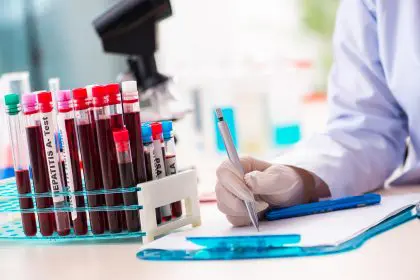In medical circles, the liver is often hailed as the body’s most resilient organ, a biochemical marvel capable of processing toxins, producing vital proteins, and even regenerating itself. However, this regenerative capacity has spawned dangerous misconceptions that gastroenterology fellow Dr. Makeda Dawkins encounters regularly in her practice. During a recent interview with Rolling Out Health IQ, she spoke candidly about the liver health myths putting African Americans at particular risk.
“I think oftentimes the patients that I see are generally in the hospital, and once you’re in a state where you require an inpatient stay, the conversation is a little bit different,” Dr. Dawkins explains. “The one thing that they always take for granted is the effort they put into maintaining their health.”
The regeneration fallacy that puts lives at risk
Perhaps the most pervasive and dangerous myth Dr. Dawkins encounters is the belief that the liver’s regenerative abilities make it somehow immune to permanent damage.
“The idea that whatever you do, the liver’s going to regenerate, and you’ll be fine. I’ve heard this so many times,” she says. “People say, ‘Oh, the liver regenerates. It’s a special organ.’ It is a very special organ. It’s my favorite organ. However, there’s always a limit. Everything has a limit.”
This misconception leads many to engage in risky behaviors, particularly around alcohol consumption, with a false sense of security. While the human liver can indeed regenerate after some injuries, chronic damage from alcohol, obesity, or viral hepatitis can eventually cause irreversible scarring called cirrhosis.
“You know, it’s true that you don’t necessarily need 100% of your liver to survive, because some people do live donor transplants where part of your liver is transplanted to someone else, and you live a healthy life,” she acknowledges. “Yet there’s always a limit to these things, and you don’t want to be in a situation where you’re pushing the limit, and you’ve passed the limit.”
The “weekend warrior” drinking culture
Another dangerous myth revolves around what constitutes problematic drinking. Dr. Dawkins points to a disturbing normalization of heavy alcohol consumption in social settings.
“If you’re someone that commonly is going out on the weekend, and you’re having five or seven drinks, and you’re kind of binge drinking, I know it doesn’t seem that way to a lot of people when they think about it. I think it’s maybe just a social activity. They do it once a week. However, if you’re going out once a week and having five, seven, eight drinks, that’s binge drinking,” she emphasizes.
This pattern becomes especially concerning when it extends across multiple days. “Oftentimes, if you’re doing that Friday, Saturday, you’re going to a day party on a Sunday, now you’re talking about three days of very heavy alcohol use more than twice a month. So those things kind of accumulate with time and can affect your liver.”
For African Americans, this social drinking pattern intersects with other risk factors. “A lot of patients who live in these areas and don’t have the best intake and diet also have a heavier use of alcohol. So they have basically a kind of two-hit risk factor going on for developing liver disease,” Dr. Dawkins explains.
The detox deception
Perhaps no liver health myth is more commercially exploited than the concept of “liver detoxing” through supplements, juices, or special diets. Dr. Dawkins is unequivocal in her assessment of these products.
“Detoxing, this is the biggest thing that comes up in our patients want to talk about,” she says. “The vitamins and the minerals and the tablets that are sometimes advertised in certain places are not FDA approved. They’re not FDA regulated. So a lot of the times you’re finding things on social media that may or may not have any scientific backing or input in them.”
More alarming still, many supposed liver-supporting supplements may actually cause harm. “A lot of the herbal supplements are actually documented to cause liver disease and liver irritation, inflammation. So if you’re someone who’s taking turmeric every day because you think it helps your digestion, you read that that can affect your liver.”
The irony is striking: products marketed to improve liver health can sometimes cause the very damage they claim to prevent. “It’s very important to always read the ingredients, and it’s very important to always run these things by your physician, because anything can be harmful even though you think it’s going to be helpful,” Dr. Dawkins cautions.
The BMI misunderstanding
A fourth myth involves how body composition is assessed in relation to liver disease risk. This is particularly relevant for African Americans, for whom standard BMI measurements may not always accurately reflect health status.
“Sometimes the BMI is not the best predictor in people of minority and African American descent, just because of the proportion of fat on the body,” Dr. Dawkins acknowledges. “However, when you’re talking about central adiposity, that’s the biggest sign or symptom that you do have some extra weight on the body.”
Central adiposity, fat concentrated around the midsection, has a stronger correlation with fatty liver disease than overall weight. This distinction is crucial as fatty liver disease increasingly contributes to liver transplant need and liver cancer risk.
“When it comes to obesity, it’s difficult to tell, because now there is so much more information and more advertising about what we call fatty liver disease. And now there’s data to show that actually, fatty liver disease can cause cancer,” Dr. Dawkins explains. “So now you can definitely say, when you talk to patients, ‘Yes, sometimes patients who are overweight do develop malignancies of the liver just from being overweight.'”
The silent progression misconception
The fifth dangerous myth is that liver disease announces itself with obvious symptoms, giving ample warning before serious damage occurs. In reality, liver disease often progresses silently until advanced stages.
“When you’re talking about patients who may be overweight, who may also have high blood pressure, may also have diabetes, and may also have coronary artery disease, or signs of metabolic syndrome,” Dr. Dawkins notes, these patients often don’t connect these conditions with liver health until significant damage has occurred.
The early stages of fatty liver disease rarely cause symptoms that would prompt medical attention. Instead, the condition is often discovered incidentally. “Sometimes what we find is that when patients go to the emergency room for one reason, oftentimes you get a CAT scan. It’ll show that you have some fatty infiltration of the liver.”
By the time noticeable symptoms appear, jaundice, fluid accumulation, or fatigue, the disease has often progressed significantly. This silent progression is particularly dangerous in communities with limited healthcare access.
“Going to your doctor regularly and completing your routine screenings” is vital, Dr. Dawkins emphasizes. “Your lipid panel to test if you have high cholesterol, your A1C to make sure you don’t have diabetes, getting your blood pressure checked, all of those things go into your pretest probability of developing fatty liver disease.”
Prevention over misconception
In place of these harmful myths, Dr. Dawkins offers actionable prevention strategies:
1. Vaccinate against viral hepatitis. “One vaccination is very important. When you mentioned prior talking about hepatitis, there are many types of hepatitis viral hepatitis, because the term hepatitis means inflammation of your liver.” The CDC now recommends all adults over 18 be vaccinated against hepatitis B.
2. Get screened regularly. “Testing for hepatitis C is recommended as well. It’s a blood test that can be done. And it basically shows you if you ever had an exposure, or you don’t have exposure because there currently is no vaccine for hepatitis C.”
3. Build a relationship with your physician. “Don’t ever think that your questions are too small for your doctor, because that’s what they’re there for. I have a physician that I text him all the time. I have a patient portal, and they say doctors make the worst patients. Nevertheless, I’m always messaging him about what I’m doing and what I’m going to start, what he thinks. I want to get his input. Because that’s how you build a relationship. And that’s how you make sure that you’re in the best state of health.”
As our conversation concludes, Dr. Dawkins offers a sobering reminder about the irreplaceability of health, “There are a lot of things that can be replaced in life and health is not one of them. It’s a one and done. It’s your only opportunity. You only get one body, and you need to make sure you take the best care of it as possible.”
In dispelling these five dangerous myths, Dr. Dawkins offers not just medical clarity about liver health, yet a fundamental philosophy about preventive care that transcends any single organ system. The liver may indeed be remarkably resilient, nonetheless, its capacity for forgiveness has definite limits.














